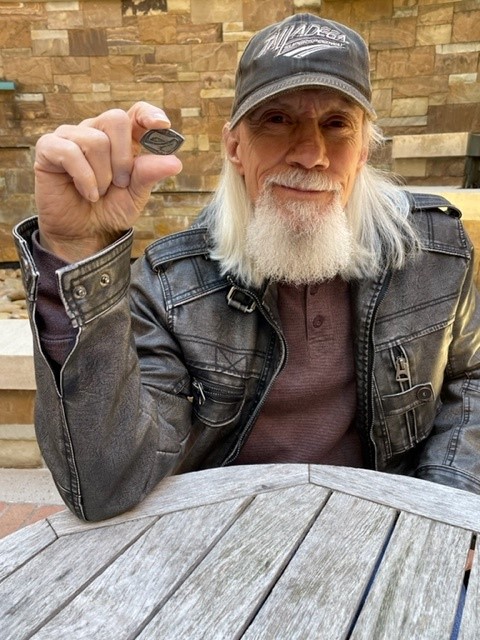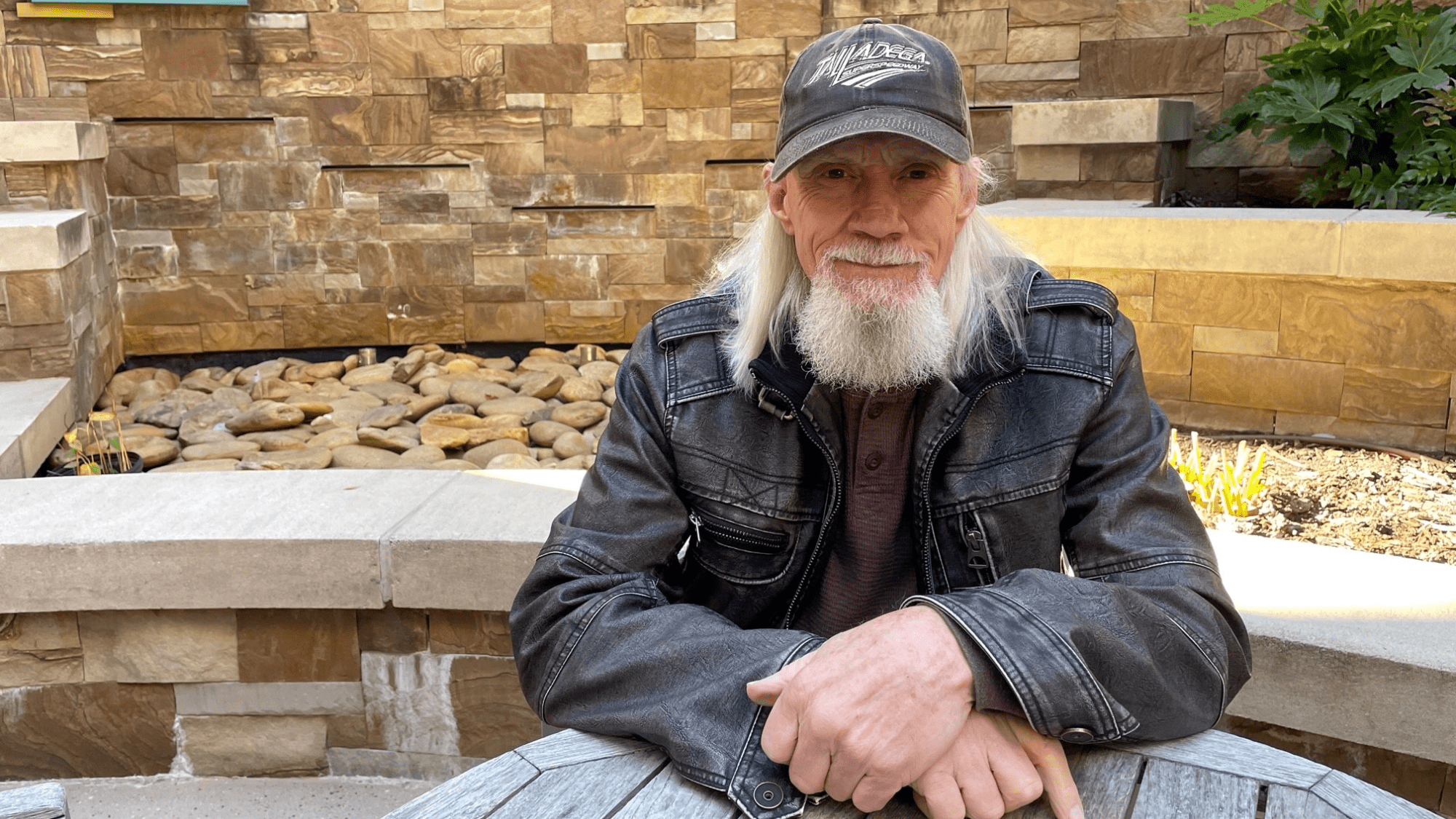UAMS Lung Cancer Survivor Beats the Odds
| About 25-30% of patients worldwide with Stage IV non-small cell lung cancer die in less than three months. But with talented doctors, advances in treatment and a bit of luck, some patients beat the odds.
John Pertuis, 62, is a member of this rarified group of lung cancer “long” survivors. With help from the UAMS Lung Cancer Team, he’s been cancer free for six years.
Pertuis’ cancer journey began in 2017 when he saw UAMS orthopedic surgeon Corey Montgomery, M.D., for removal of a lipoma in his right shoulder. A lipoma is a fatty mass that lies between the skin and muscle tissue and is usually harmless. In treating the lipoma, scans revealed a large tumor in his lung. While inconvenient, the lipoma turned out to be a lucky break that revealed Pertuis’ cancer just in time.
UAMS thoracic surgeon Matt Steliga, M.D., successfully removed the tumor from Pertuis’ lung followed by chemotherapy. Follow-up scans showed that the cancer had metastasized quickly to his adrenal gland and chest wall one month after he finished his chemotherapy.
“I prepared myself to die,” said Pertuis, a former smoker and heavy equipment operator from Bigelow, Arkansas. In addition to smoking, his exposure to air pollutants on the job likely contributed to his cancer.
Cancer was not an unknown to him — his father died of prostate cancer. But after quitting smoking more than a decade earlier, Pertuis was shocked and devastated by the news.
“He was very anxious as expected,” said Konstantinos Arnaoutakis, M.D., a board-certified hematologist/oncologist at UAMS who specializes in lung cancer treatments and clinical trials.
“It was very difficult. He was pretty young at the time, only 57. In talking to him, I tried to balance the truth with hope. The odds were not good, but there are a small group of outliers who have a remission and a durable cure,” he said.
Lung cancer is the No. 1 cause of cancer deaths in Arkansas and worldwide. About 60% of the patients seen by the UAMS Lung Cancer Team are current or former smokers.
For Pertuis, it was a race against time. Could his cancer be killed before it killed him?
The UAMS Lung Cancer Team decided to remove the chest wall tumor and radiate his adrenal gland tumor at the same time. He received a very targeted form of radiation called Stereotactic Body Radiation with Sanjay Maraboyina, M.D., UAMS radiation oncologist. Arnaoutakis started him on an immunotherapy regimen designed to enhance his own immune system to fight against the cancer. He continued it for two years.
With careful monitoring and adjustments to the regimen, his cancer has not returned. He does not require any additional maintenance medications.
Years later, Pertuis’ remarkable recovery still amazes his care team.
“Mr. Pertuis is a real victory from the medical oncology side,” said Steliga. “We hear of survival cases in patients with lung cancer that is this advanced, but it’s pretty unusual. We can really push the boundaries here with every patient to give them the best chance of survival.”
Pertuis was told he was cancer-free, but it took years before the emotional burden started to lift.

John holds the Seed of Hope token he received upon completion of active treatment for stage IV non-small cell lung cancer. He carries it in his pocket to remind him of how far he has come.
“Even when I was told the scans were clean, I didn’t feel free of it,” he said. “It was good news, but I was always afraid it would come back because it had in the past.” His last clean scans were in early November 2022.
Pertuis said it was difficult to cope emotionally with the effects of having what he thought was terminal cancer. He sought the help of a UAMS psychiatrist to manage increasing feelings of anxiety and depression that are common in cancer patients, families and caregivers. Depression is often the “other” disease that can come with a cancer diagnosis.
“I thought I was going to die. They gave me a 10% chance to live and the pain of that was a lot to handle. But here I am six years later.”
Today, Pertuis is looking forward to the holidays with family and enjoying peaceful days at his home on Wye Mountain.
“I think they are the most awesome people I have ever met,” said Pertuis of his UAMS care team that included specialists from thoracic surgery, medical oncology, radiation oncology, nursing and social work. “I’m really lucky to be alive.”
